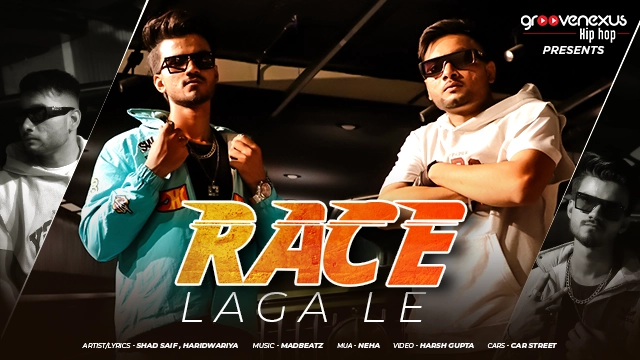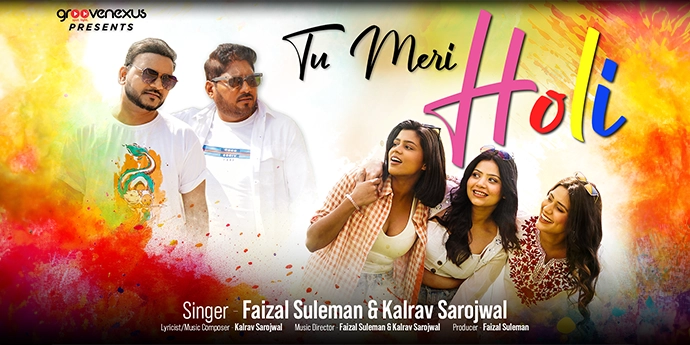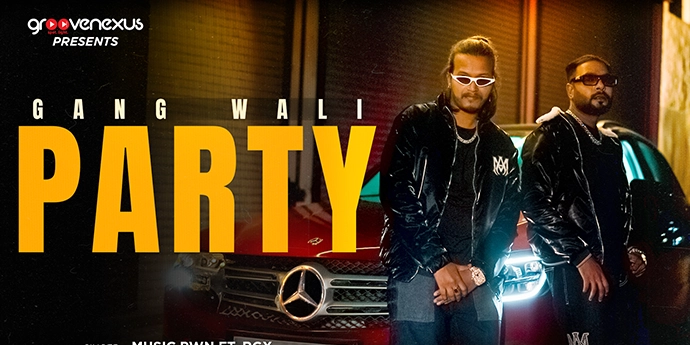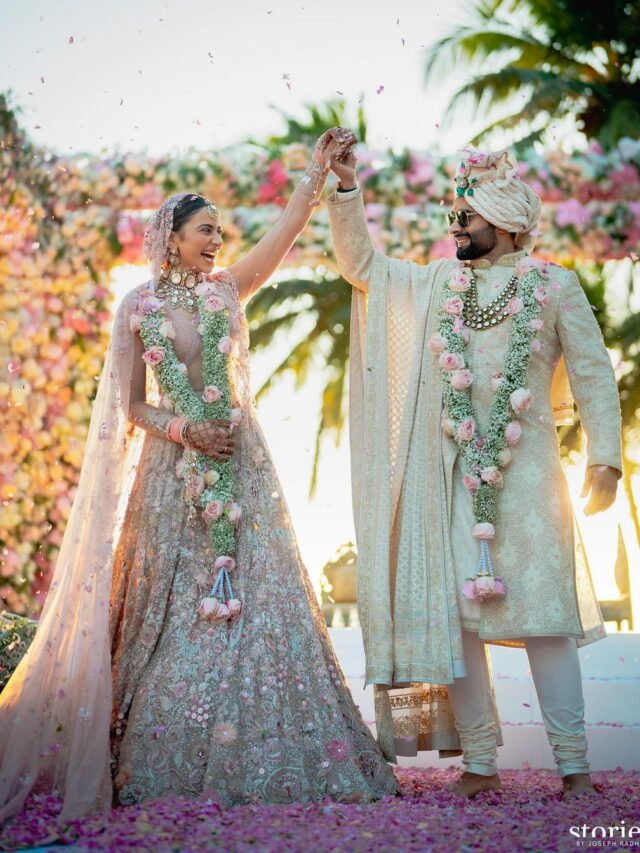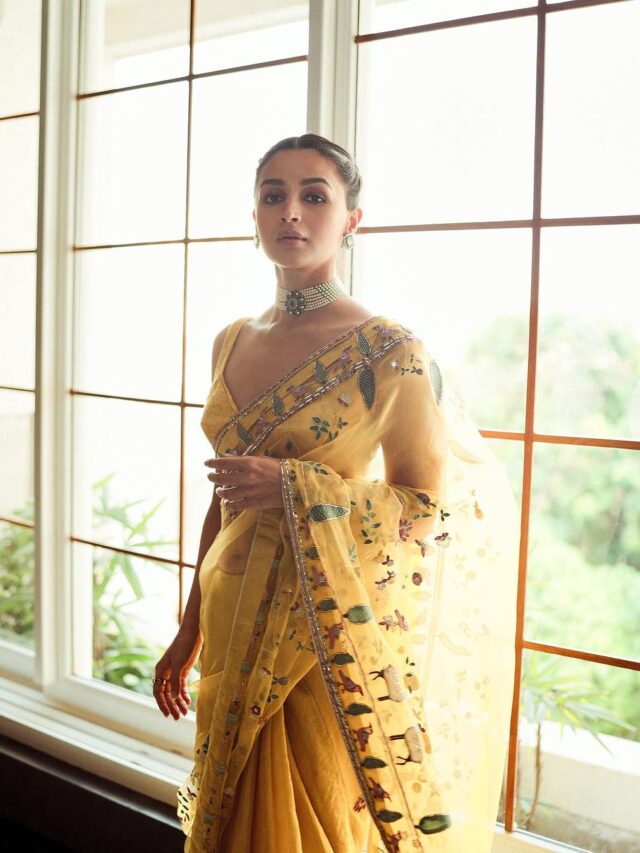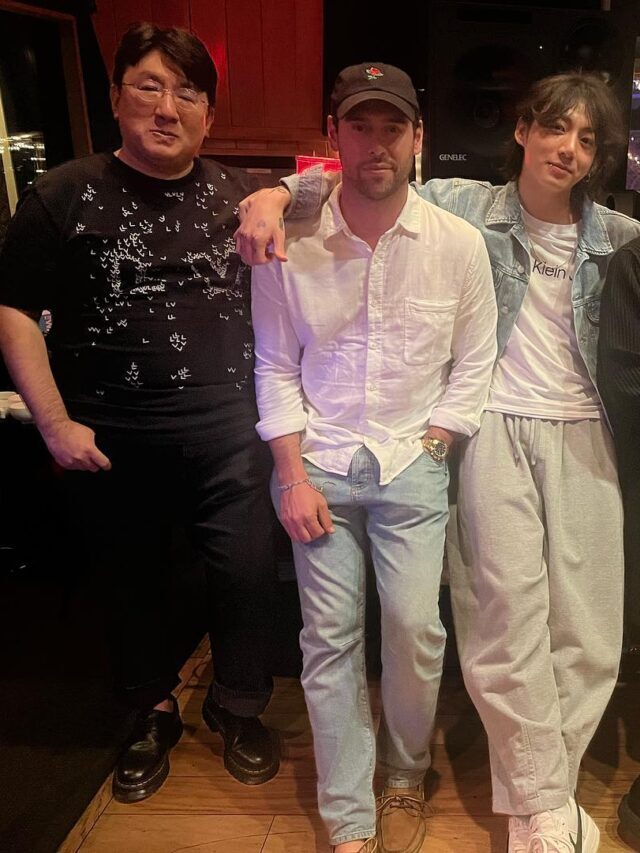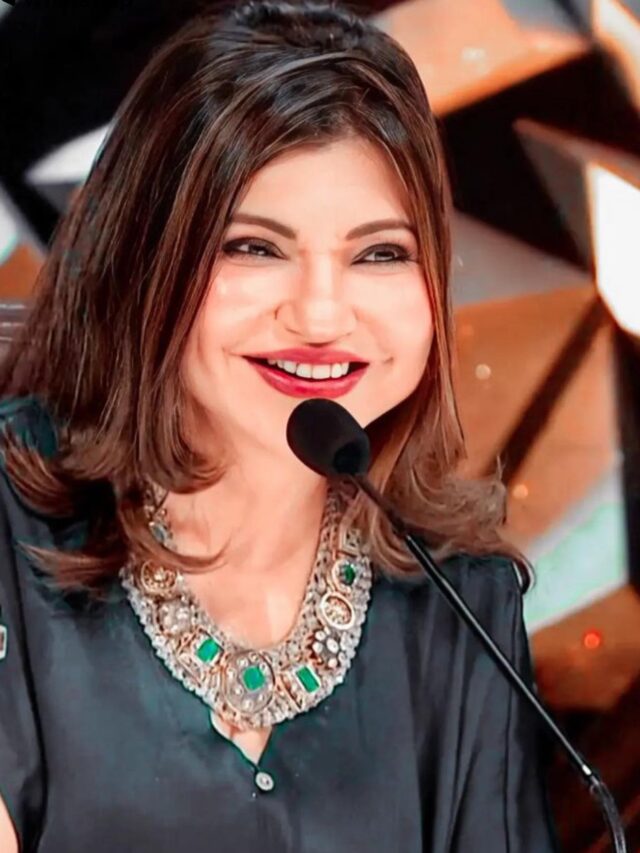Musicians need to understand how copyright law works and the protections they can demand.
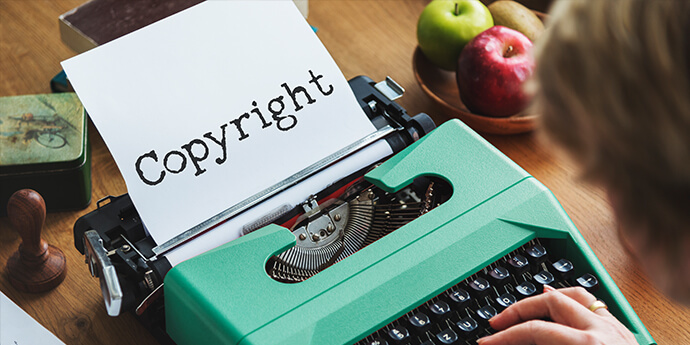
The first thing you should know is that original works are protected by copyright after they are “fixed” into something tangible. The fixation process occurs, for example, when a song is recorded as an audio file, career information is written down in sheet music, or a digital file is created. Copyright protection in music copyright law does not require any further action from you. In addition to giving you the right to reproduce your work and sell copies, distribute those copies, and do a new job, your copyright also gives you the freedom to public perform your work. Copyright law for music is protected by that state’s or country’s regulatory body. In U.S it is called Copyright law of the United States.
When we think of a song, we often think of the artist who has got fame for singing it. Not every artist writes his/her own songs. Sometimes there are song writers who do this job for them. We sometimes tend to forget about the talented individuals who write the underlying music and lyrics; who are the true back for the famous singer. What we meant to say is, both the performer and the songwriter have copyright protection in a song.
Table of contents
- Music is protected by copyright law on music and reflects on two levels:
- Registering Your Work
- Here are the names of collective license bodies that works in US for variety of work happening in US
- These activities require a mandatory licensing under Copyright Act of US
- Using Someone Else’s Work
- If Your Work Is Used Unlawfully
- Important Laws to Keep on Your Radar
Music is protected by copyright law on music and reflects on two levels:
The Two Types of Work when you talk about US copyright law music for a song creation-
Creating a musical career and recording a song produces two saved results. Each item included in a sound recording is a separate work protected by music copyright. They are owned and licensed separately but are subject to different rules.
- The U.S. Copyright Act requires songwriters and publishers that grant to third parties a compulsory license for the reproduction and distribution of their musical compositions (subject to certain conditions). It is referred to as a compulsory mechanical license complies with statutory notice, accounting, and other requirements, and so much more.
Alternatively, you can obtain separate voluntary licenses from the rights holders namely- the Harry Fox Agency.
The composition and lyrics of a song that constitute a musical work. Composers and songwriters usually create musical pieces.
- Similarly, the U.S. Copyright Act and U.S. music copyright law requires performers and record labels to grant to third parties with a compulsory license for the non-interactive digital public performances of a sound recording (again, subject to certain conditions).
An audio recording is defined as a series of musical, spoken, or other sounds permanently fixed on a permanent record, such as a CD or digital file, otherwise known as a “phonorecord.” We can create sound recordings in collaboration with the performers.
Registering Your Work
Although copyright protects your work from the moment you create it, you can still register it with the U.S. Copyright Office for additional benefits. One of these is access to federal courts should you be identified as an infringer. You will also make your work public by writing it. A registration application to the U.S. copyright office requires a copy of the work, an application, and the filing fee. Online applications are available for a variety of work types, including:
- Group Registration of Unpublished Works allows the claimant to register ten unpublished works by the same author.
- An applicant can also report any associated works such as cover art, liner notes, and posters that go with the recording when applying to register sound recordings under music copyright.
You can reach out to our help team for assistance in determining the best option for you in knowing music copyright under music copyright law.
Here are the names of collective license bodies that works in US for variety of work happening in US
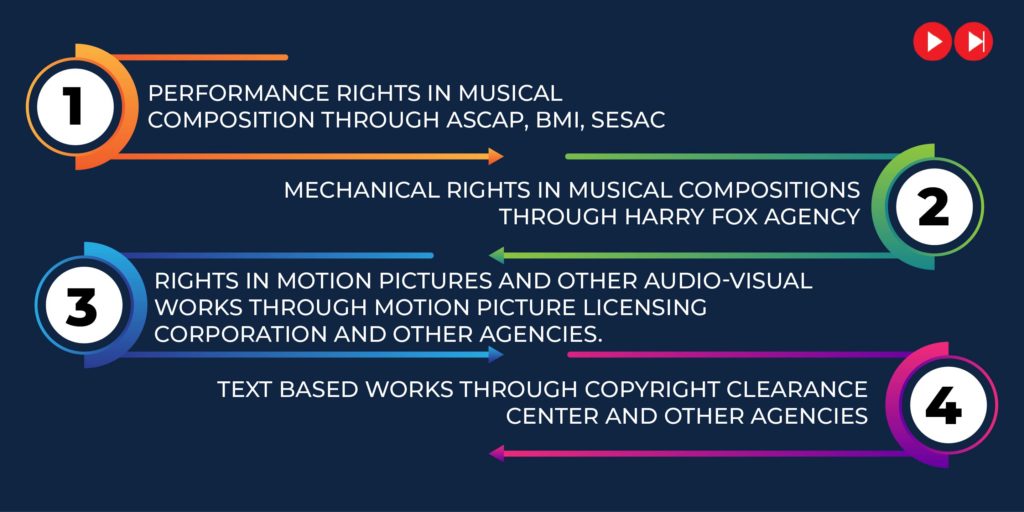
These activities require a mandatory licensing under Copyright Act of US
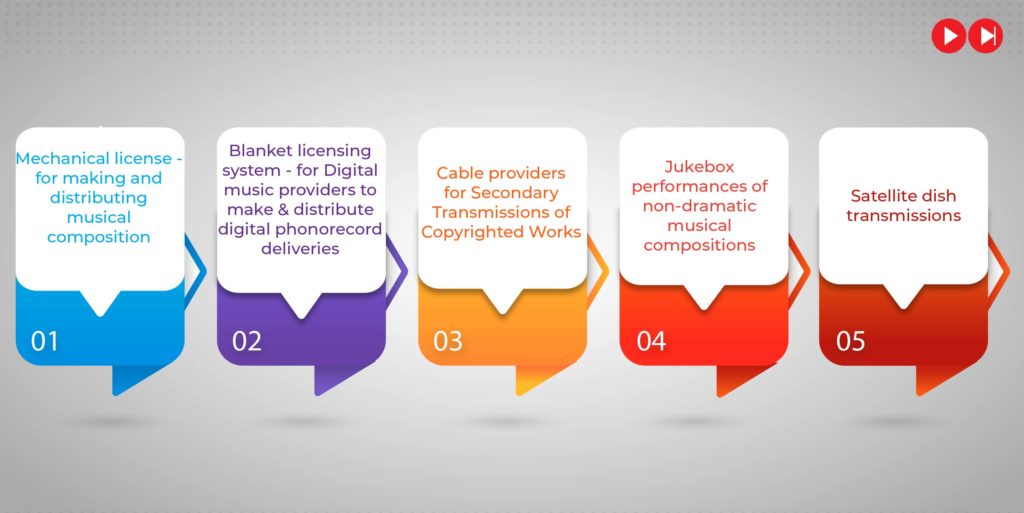
Using Someone Else’s Work
It is integral to the creative process to be inspired by others’ work. New compositions, recordings, and performances often revolve around other pieces. Using other works freely is not a given.
Let’s review some of the essential copyright principles under copyright law music:
Generally, to use the sound recordings or musical works of another artist, you must:
- Obtain permission from the authorized copyright holder directly.
- Ensure that exclusive rights are limited based on statutory provisions, such as fair use.
Remember:
- It isn’t necessary to get permission for the use of a certain amount of music.
- If you plan to use another person’s work, for example, in a cover tune, always make sure you are legalizing the use before engaging in any activity.
- Trying and failing to contact the rights holder is not a substitution for permission. Representatives of the owners usually handle licensing of their works and specific user types. Music publishers or performing rights organizations are examples of those organizations.
Get the complete guide by arranging music copyright law and by downloading music and copyright law from an authentic website of your country.
If Your Work Is Used Unlawfully
It is your right to pursue legal action if your work is used illegally, without your permission, and without regard to any statutory limitations. Before bringing a lawsuit for infringement against your work in the United States, you must register your work with the Music Copyright Office. Then you must register in a specific amount of time if you plan on pursuing damages or attorney’s fees in that lawsuit. For example, you need the registration to seek reimbursement for your attorneys’ fees or earn other types of compensation if someone uses your work without your permission.
Federal courts usually decide copyright lawsuits. A new dispute resolution board for minor copyright issues will be created by the Copyright Office shortly. Please see the information below for more details.
Important Laws to Keep on Your Radar
By changing the way music works, the MMA offers a more user-friendly experience. Thanks to interactive streaming services, it will be effective January 1, 2021, rights holders will be compensated for playbacks of their jobs online. A digital music provider may opt for a blanket license to receive payment from the government. To ensure that your information is registered with the Mechanical Licensing Collective (The MLC), you must visit their online claiming portal. This application does not replace copyright registration. Identify yourself in the registration or other public records of the Copyright Office to ensure that you are due a royalty on non-digital usages of your musical works.
To resolve copyright disputes about damages less than $30,000, the Copyright Office may create the Copyright Claims Board under Section CASE Act. An alternative to federal courts would be streamlined and cost-effective.
Copyright laws are made for fair use of music in all aspect and should strictly be abided by music makers in the community.



